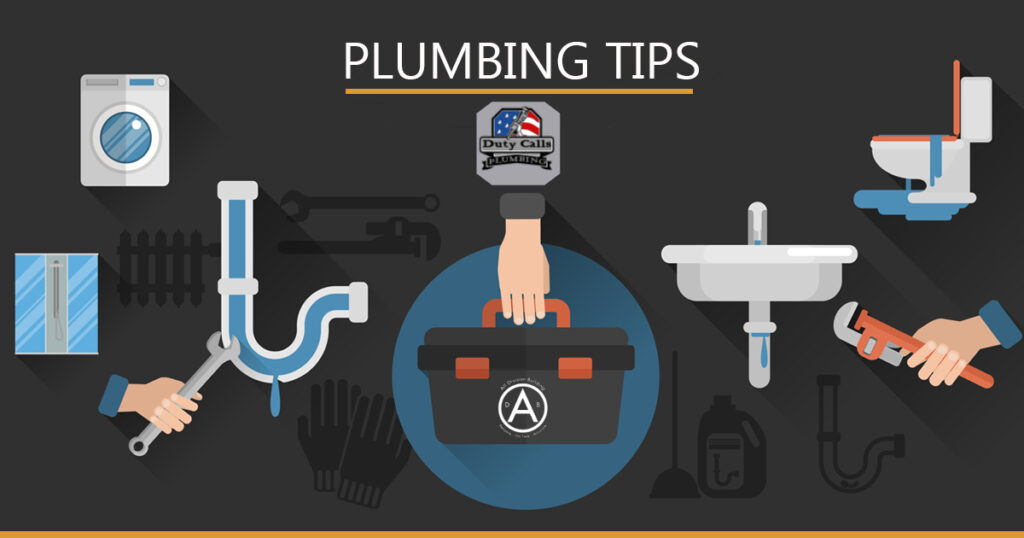
As a homeowner, you understand the importance of having a sound plumbing system. Plumbing concerns can disrupt your routine, but there are ways to prevent these issues from happening. Below is a list of tips from the certified New Castle Plumber – Duty Calls Plumbing that we’ve compiled to help keep your home in working condition.
1. Your Drain is Not for Greasy or Oily Food
Avoid pouring grease or oily food down your drain. These substances can solidify and cause blockages, leading to serious plumbing issues. Instead, pour cooled grease into a container, let it solidify, and then dispose of it in the trash. This simple step can save you from major plumbing headaches.
2. Use a Strainer
While showering, hair and other particles can accumulate and form clogs in your pipes. Use a strainer to catch these particles before they go down the drain. Choose from different types of strainers, like wire mesh or back nut, to keep your pipes clear. Regularly cleaning the strainer will ensure it remains effective.
3. Know What You Can Flush
Only flush the three P’s: pee, poo, and (toilet) paper. Flushing anything else, like wipes or sanitary products, can cause severe clogging and backups, as these items do not break down easily and can accumulate in your pipes. Non-biodegradable items can cause significant damage and expensive repairs.
4. Keep Your Main Sewer Drain Accessible
Ensure your main sewer drain is free from obstructions and easy to locate. This can save time and resources in the event of a blockage, allowing for quick access and resolution. Mark its location and keep the area around it clear to facilitate emergency access.
5. Dealing with Clogged Drains
Avoid using chemical drain cleaners, as they can harm your plumbing and the environment. Instead, learn emergency plumbing solutions or contact Duty Calls Plumbing to address the issue safely. Simple tools like a plunger or a plumbing snake can often resolve minor clogs without damaging your pipes.
6. Know Where to Locate Your Main Water Valve
In case of a plumbing emergency, such as a burst pipe, knowing where your main water valve is located can save your home from significant water damage. Typically, the valve is found in the basement near the water heater. Shutting off the main valve will stop the flow of water into your home, giving you time to manage the situation.
7. Check for Leakages
Regularly inspect your pipes for leaks, as they can cause structural damage and promote mold growth, which poses health risks. Pay special attention to areas around toilets and faucets, as these are common places for leaks to occur. Fixing small leaks promptly can prevent larger problems and higher repair costs.
8. Protect Your Plumbing from Freezing
During winter, insulate your pipes and keep your home warm to prevent them from freezing. Frozen pipes can burst and cause extensive damage, so take precautions to keep your plumbing safe during cold weather. Open cabinet doors to allow warm air to circulate around pipes and let faucets drip during extreme cold spells.
9. Avoid Using Chemical Drain Cleaners
Chemical drain cleaners can damage your pipes and harm the environment. They kill beneficial bacteria in your septic system and may end up in the water supply. Opt for natural alternatives or seek professional help for persistent clogs. Enzyme-based cleaners can be a safer, eco-friendly option.
10. Know When to Turn Off the Source
If you accidentally damage a pipe during a renovation, shut off the water supply immediately to prevent flooding. Knowing how to quickly stop the water flow can save you from significant repair costs. Familiarize yourself with the locations of all shut-off valves in your home.
11. Separate Shut-Off Valves
Install separate shut-off valves for different fixtures in your home, such as toilets and faucets. This allows you to work on specific plumbing issues without shutting off the water supply to the entire house. Individual shut-off valves make repairs more convenient and minimize disruption.
12. Monitor the Water Pressure
Regularly check your water pressure using a gauge. The ideal range is between 40 to 60 pounds per square inch (PSI). High or low pressure can damage your pipes and fixtures, so ensure it remains within the optimal range. Installing a pressure regulator can help maintain consistent pressure.
13. Replacing Your Water Heater
Water heaters have an average lifespan of eight years. If yours is approaching or exceeding this age, consider replacing it to avoid unexpected breakdowns. Consult a professional to help with the replacement process. Regular maintenance can also extend the life of your water heater.
14. Know When to Seek Professional Help
While you can handle minor plumbing issues yourself, more significant problems like persistent clogs or major leaks require professional assistance. Don’t hesitate to call Duty Calls Plumbing when needed to prevent further damage. Attempting complex repairs without the proper knowledge can exacerbate the problem.
15. Be Proactive
Stay vigilant and proactive about your plumbing maintenance. Regular inspections and timely repairs can prevent minor issues from becoming major problems, ensuring your plumbing system remains in good condition. Being attentive to early warning signs, such as slow drains or unusual noises, can save you time and money in the long run.
By following these 15 tips, you can prevent many common plumbing problems and maintain a healthy plumbing system in your home. Remember, being prepared and proactive is the best way to avoid emergencies and costly repairs.
